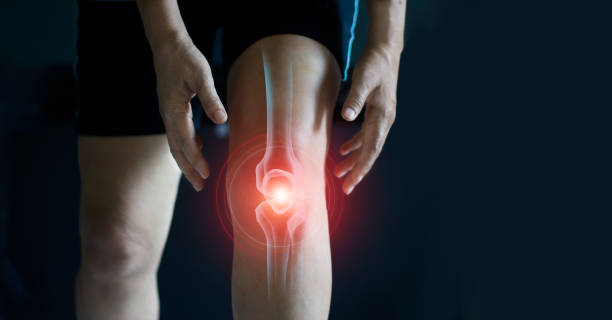
Post-surgery care tips to recover from knee replacement surgery
Knee transplant surgery, also known as arthroplasty, involves replacing the damaged parts of the knee that cause pain and discomfort with plastic or metal components. This way, surgeons restore knee cushioning and help patients to walk and perform various activities comfortably.
While osteoarthritis and age-related issues are the most common reasons for undergoing orthopaedic knee surgery, it may also be considered in cases of rheumatoid arthritis, knee deformities, or severe knee injuries. Depending on the condition, surgeons may recommend total or partial knee replacement surgery.
The entire medical journey from the initial consultation with doctors to the final days of recovery can be challenging and overwhelming for the patient. Although the surgery is in the hands of the orthopaedic surgeons, the recovery process demands the support and cooperation of the patient and their family members. Hence, it is critical to understand what happens after a knee replacement surgery and what can be done to ensure a quick recovery.
Tips for Recovery from Knee Replacement Surgery
Knee replacement recovery begins at the hospital itself. While some patients can leave the hospital within a few hours of surgery, others have to stay for several days. After surgery, the hospital staff starts working on the recovery process. For instance, they ensure that patients take appropriate medications at the right time and engage in physical therapy by encouraging them to move their feet, get up and walk around in small steps.
Once discharged from the hospital, the major part of knee replacement recovery continues at home. Here, patients and their family members must take extra precautions to ensure that progress is made in the right direction.
Following are some pointers that can help patients in better and faster recovery:
1 . Regular Exercise
It may appear unusual to consider physical activity immediately after operation. However, it is the best way for patients to resume their normal activities as soon as possible. Physical activity also restores movement and strengthens the new knee. Exercises such as leg lifts and quad sets may be painful at first, but they are necessary for a speedy recovery.
2. Use a walker
It is recommended to use a walker for the first three to four weeks after operation as walking normally would be difficult and risky. Walker enables patients to move around without exerting a lot of pressure on the knee, thus, avoiding the occurrence of any pain and swelling.
3. Do cold therapy
The recovery process following knee replacement surgery is slow, and it is common for patients to experience pain and swelling in the operated region. Using ice packs several times a day can aid in reduction of the swelling. One can even opt for hot therapy.
4. Follow the recommended diet
After orthopaedic knee surgery, the surgeons may recommend some dietary changes to facilitate the recovery process. For instance, intake of nutrient-rich fruits and vegetables is recommended. They also advise avoiding alcohol and tobacco during the period.
5. Take Proper Rest
Patients must battle their eagerness to stand up and return to normal activities until the knee heals completely. Taking proper rest is necessary to ensure recovery within the expected time frame. However, sleeping or sitting for long periods is also not recommended. Every two hours, patients should move around for 5-10 minutes. While sleeping, pillows underneath the knee must also be removed as it may result in a permanently bent knee.
6. Making proper arrangements
A smooth recovery also necessitates some preparations at home, particularly in the patient's room. Since they would be unable to walk or get up frequently, all necessary items such as ice packs, bandages, walkers, medications, a cell phone, etc., should be kept close to them. Some extra pillows should also be available so that the patient can use them to elevate their lower leg.
7. Avoid activities that might strain the knee
Lifting heavy weights, jumping, skipping, running, and other activities that exert too much strain on the knee should be avoided at all costs. Instead of engaging in high-impact activities, stick to gentle exercises like walking and stationary cycling.
8. Consult the surgeons regularly
Patients must consult their surgeons regularly and visit them at least once or twice a month to monitor their recovery progress. Such visits will determine whether or not there are any problems with the knee and, thus, prevent any problems in the future.
9. Take care of wounds to prevent infection
It is critical to keep the wound clean and free of infection until the incision heals completely. The incision site must be kept dry as contact with moisture might attract bacteria. When changing dressings, make sure the hands are clean and softly dry tap the wound before applying a new one.
10. Weight management
Since knees are the body's most weight-bearing joints, body weight is a crucial factor in determining the speed of recovery. As patients spend a lot of time in bed after surgery, they might gain extra pounds. More weight means that the knees will have to bear more burden, which can, in turn, exert a lot of strain on the operated area. As a result, patients must monitor their weight, exercise regularly, and eat a healthy diet.
Conclusion
Recovering from knee replacement surgery can be slow and challenging, but it enables people to walk and move around without pain or discomfort. Proper care and medical guidance, combined with strong social support, can make the transition to daily routine better and faster. Medanta is amongst the best hospitals for knee replacement in India and provides all types of medical and surgical assistance to patients throughout their medical journey. For more information related to knee replacement surgery, get in touch with our team of top orthopaedic surgeons here.






